National Park Jiuzhaigou#
by Stas Sedov and
Dmitry Moiseenko,
members of the AirPano Team that is a member of the global-geography Consortium.
30 December 2014
with kind permission of AirPano
There are a lot of magnificent historical and natural places in China. AirPano team has already created several panoramas of this wonderful country: The Great Wall of China, Yuanyang Rice Terraces, Thousand Island Lake and others. We didn't pay attention to The National Park Jiuzhaigou before, so this time we are going to correct this mistake.
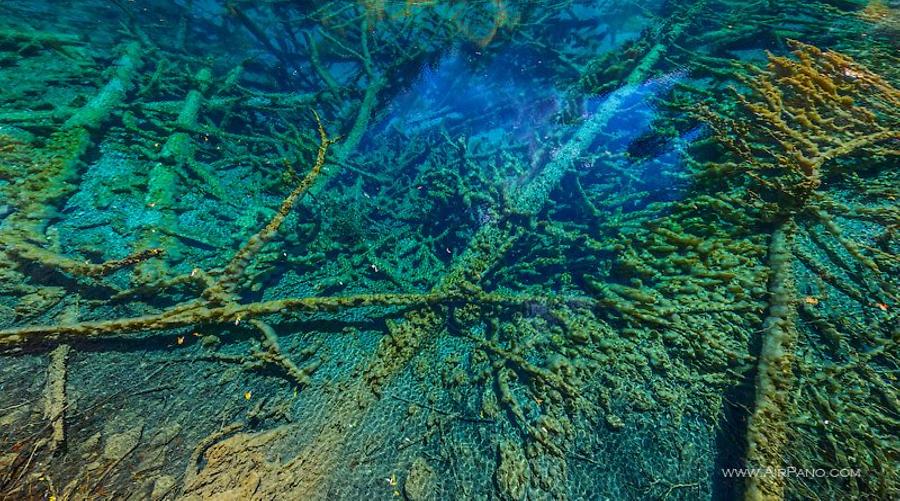
Jiuzhaigou is translated as The Valley of Nine Villages. Seven of the nearest villages are still inhabited by people. But we think that this name is not suitable for such a natural monument, which inscribed by UNESCO as a World Heritage Site in 1992.
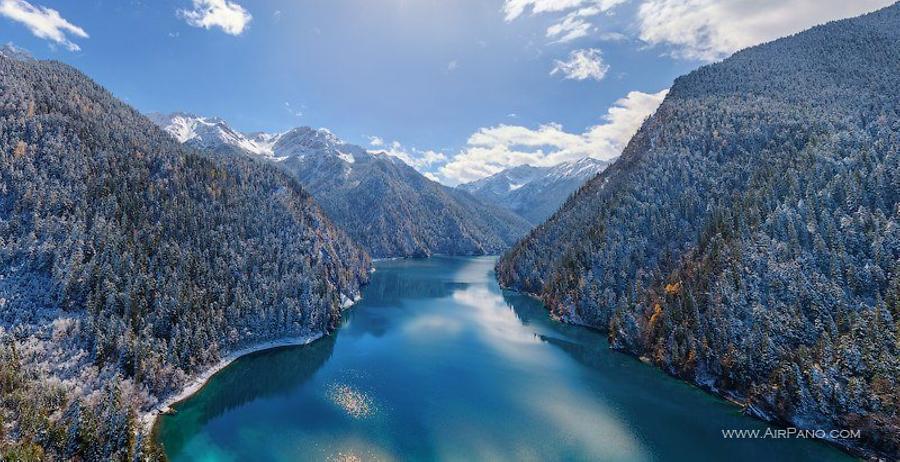
Jiuzhaigou is composed of three valleys arranged in Y-shape. The Rize and Zechawa valleys flow from the south and meet at the centre of the site where they form the Shuzheng valley, flowing north to the mouth of the valley. Reserved landscapes of these valleys are created by multi-level waterfalls and wonderful colorful lakes. They were originated as a result of glacial activity: they were dammed by rock falls and other natural phenomena, and then solidified by processes of carbonate deposition. The water of several lakes is so clear that the bottom is often visible even at high depths. And every lake is unique.
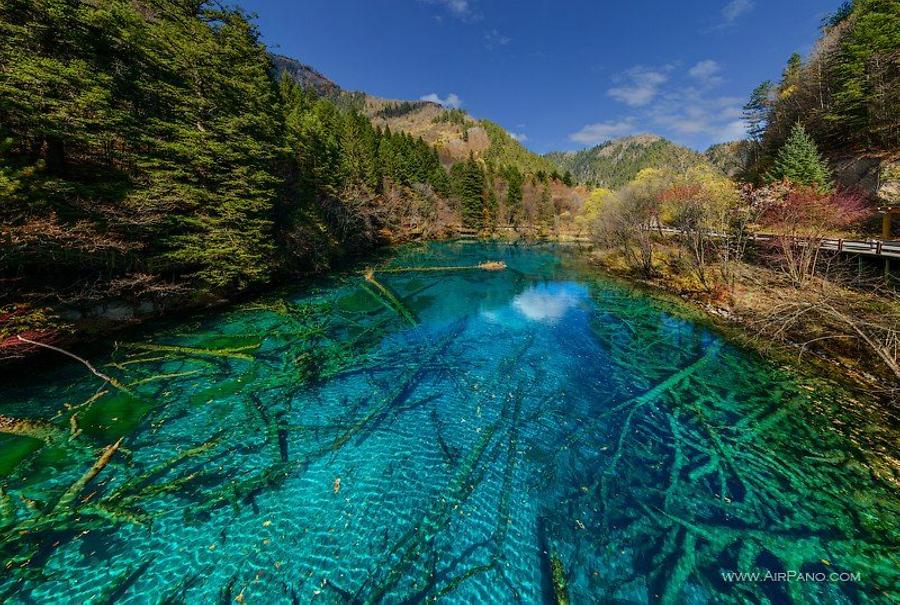
Picturesque Swan Lake is named for its feathered inhabitants. The surface of Grass Lake is covered in intricate vegetation patterns. Panda Lake features curious color patterns of blue and green... And these are just some of the very interesting sights of The Rize Valley. There is also Pearl Shoal which is a wide, gently sloping area of active calcareous deposition covered in a thin sheet of flowing water. It empties into the famous Pearl Waterfalls, where the shoal drops 28 m in a 310 m wide broad curtain of water.
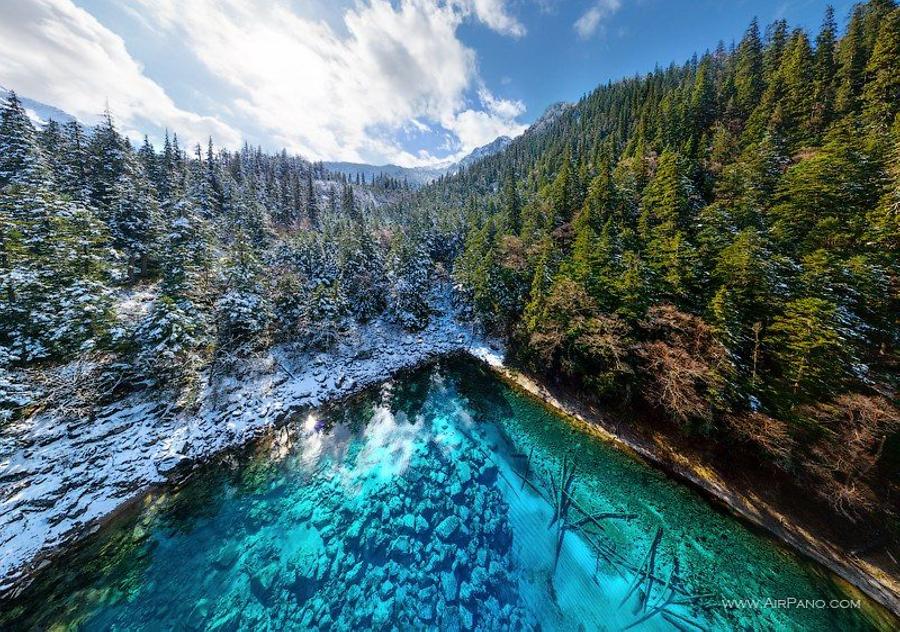
In The Zechawa Valley there is Long Lake which is the highest, largest and deepest lake in Jiuzhaigou. It is measuring 7.5 km in length and up to 103 m in depth. It reportedly has no outgoing waterways, getting its water from snowmelt and losing it from seepage. Local folklore features a monster in its depths. In that very valley there is also one of the smallest water bodies of the national park — Five-Color Pond. This pond is the most famous one: it has a richly colored underwater landscape with some of the brightest and clearest waters in the area.
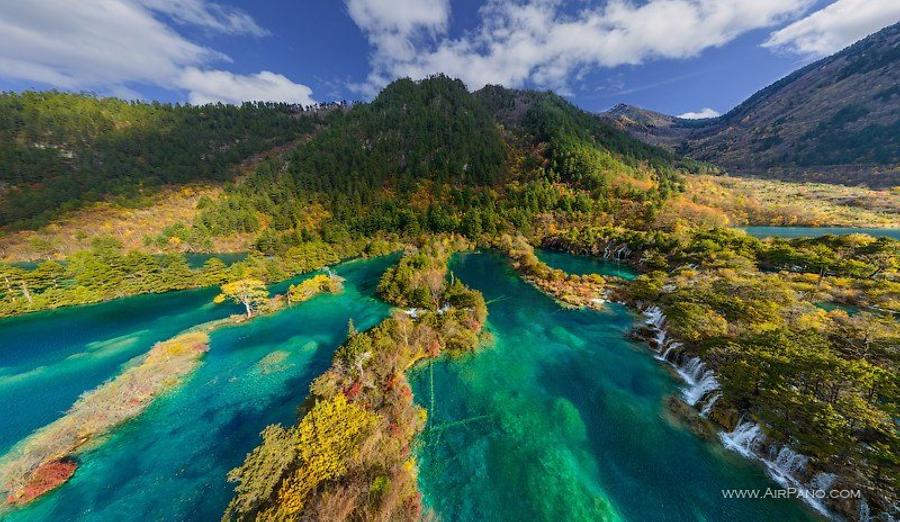
The Shuzheng Valley can be proud of the widest highland waterfall in entire China. Nuorilang Falls are 20 m high and 320 m wide. Bearing the same names, Nuorilang Lakes and Shuzheng Lakes are stepped series of respectively 18 and 19 ribbon lakes formed by the passage of glaciers, then naturally dammed. Another unusual lake of the valley is named after Sleeping Dragon: it is notable for the clearly visible calcareous dyke running through it, whose shape has been compared to a mythological monster. Reed Lake is a complete opposite: actually it is a reed-covered marsh with a clear turquoise brook zigzagging through it. The contrast is particularly striking in the autumn when the reeds turn golden yellow.
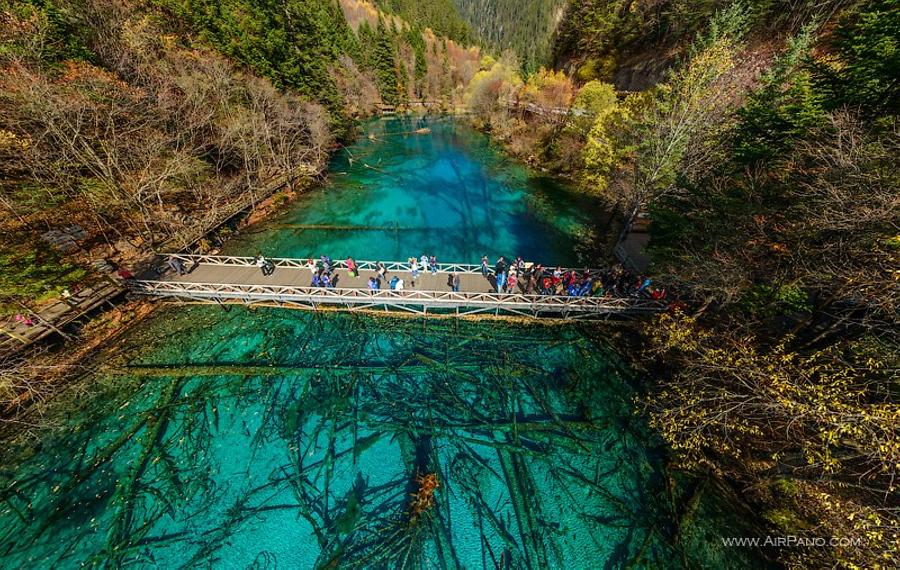
Nearly 300 km2 of the area are covered by virgin mixed forests. Those forests take on attractive yellow, orange and red hues in the autumn, making the landscapes of Jiuzhaigou truly colourful. These forests are also home to many endemic plants and such endangered species as giant panda and golden snub-nosed monkey.
We doubt that you will be able to see these representatives of local fauna in our panoramas, but you can be sure that other beauties of The National Park Jiuzhaigou are fully presented here.
19 Panoramas of National Park Jiuzhaigou